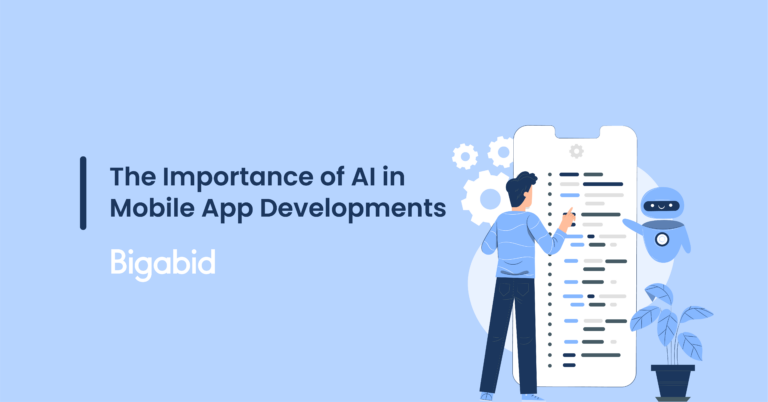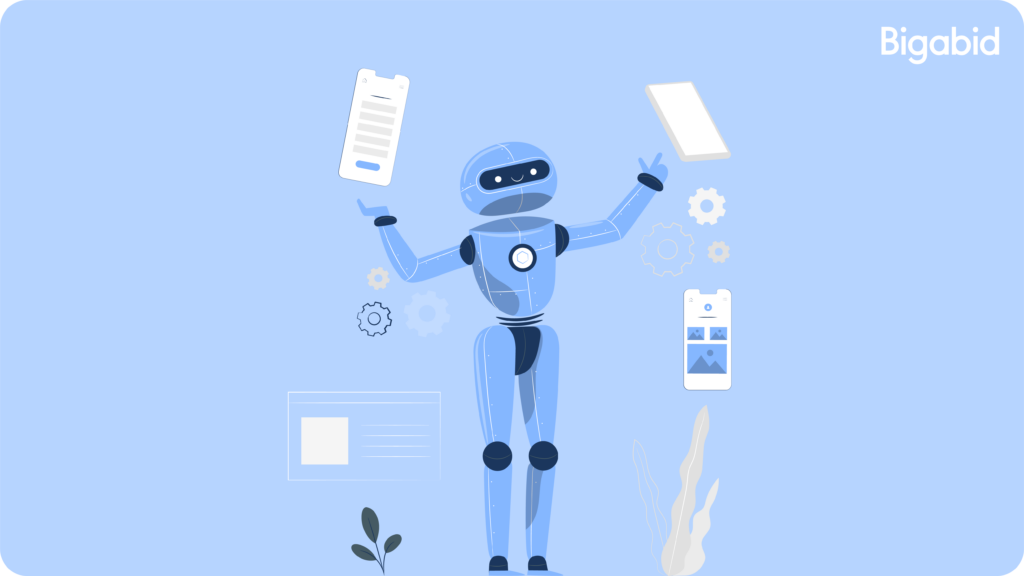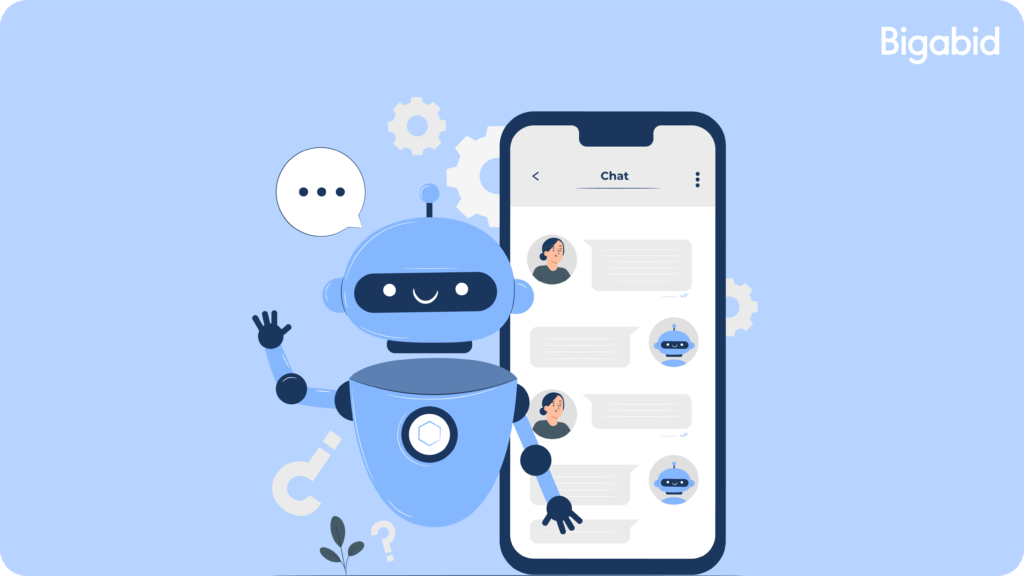
The marketplace for mobile apps development now contains over 5 million options. Companies must develop an app to help them remain competitive in their present markets and expand. This is made feasible by integrating AI into mobile app development. Because of the fierce competition, having a well-designed mobile app can give a company a significant advantage. In addition, it will assist you in designing mobile applications that are well-tailored, provide a customized user experience, and keep consumers engaged with your offerings.
Artificial Intelligence (AI) imitates human thought and behavior by simulating intelligence. Experts affirm that it observes its surroundings and responds appropriately to improve its chances of success. AI is not only extensively incorporated into computer programs, but it is also utilized in numerous products and services, including the development of mobile apps. If you want innovation and creativity in your app, AI will play a significant role in mobile app development. The technology utilizes a machines’ ability for comprehension and reaction to provide the optimum user experience.

The usage of AI in mobile app development is widespread. It serves to resolve common user queries and improve their daily routine. By collecting and analyzing information from mobile devices such as contacts, location, and activities, AI can aid in enhancing user satisfaction. AI-based apps have the capability to accumulate and examine the data from customer interactions to facilitate human requirements. This assists in creating AI-powered apps that are adaptive to changing user needs. As a developer, it is crucial to comprehend the significance of AI in creating mobile apps. Let’s explore the details
Learn more about trusting AI and Machine Learning.
Auto-reply functions can be included in mobile app development by leveraging AI. This will allow for seamless communication between users and equipment. Google has already implemented this feature in Gmail, providing users with advanced responses. The tool reads messages and suggests potential responses based on collected data.
To enhance the functionality of mobile applications, developers are using AI and ML technologies like speech and picture recognition. One such technology, called Google Lens, uses artificial intelligence to provide information about an object when an image is taken of it. This technology improves the client experience and usability of searches and can help increase conversions.

AI-powered app authentication is becoming increasingly important as cybercriminals continue to leverage cutting-edge technologies to breach systems. To anticipate and resist security threats in real-time, mobile apps must keep pace with technological advancements. With AI integration, mobile apps can detect irregularities in user actions and leverage advanced technologies like machine learning and blockchain to mitigate risks and enhance the authentication process and user experience.
Discover more about Real-Time Machine Learning.
Facial recognition is a prominent security application. The AI-based algorithm on Apple iPhone X boasts additional functions and characteristics: users can effortlessly access their phones regardless of any appearance modifications. This technology can also prevent youngsters from accessing inappropriate internet content, recognize potential cyber threats, and even diagnose patients based on their facial symptoms. Finally, AI-powered smartphone translators facilitate communication with individuals around the world.
Mobile applications can include AI-powered translators that use advanced technologies to translate languages in real-time. Although many translation apps are available, not all of them are effective when offline. However, AI-capable translators offer real-time language translation without an internet connection. By utilizing machine learning powered by artificial intelligence, these apps can translate different variants of a language and can be adjusted for latency. This allows users to control the time it takes to translate spoken words. Companies such as Baidu, the Chinese search engine, are at the forefront of developing these language translation capabilities.

AI-powered chatbots are widely used by mobile app developers to interact with customers and provide customer support. Chatbots, which are driven by AI, are designed to answer the most frequently asked questions. This eliminates the need for a entire customer service team, and can be a more cost-effective solution for businesses. Developers can create chatbots to respond to common inquiries, thus providing a better user experience for customers.
Learn more about Customer Service for Mobile App Developers
To retain user engagement, offering relevant information is crucial. Integrating AI into mobile applications is one way to achieve this. You may have observed the “Customers who bought this also bought” feature in most online systems that provide relevant product recommendations. This can increase your client retention rates and conversion chances. Collecting data on user preferences and integrating them into your learning system can generate compelling suggestions that increase the likelihood of investment.
Discover more about User Engagement.

The use of AI revolutionizes the way users interact with mobile apps, hence businesses can give their customers enhanced experiences by incorporating AI. A reliable technology partner like Bigabid can help developers find the right partners to help integrate AI intelligence. It is also important to engage with customers and encourage them to utilize the services provided. The significance of AI in app creation is growing fast, and will likely become a primary creative ingredient in app development, making it a wise investment choice.